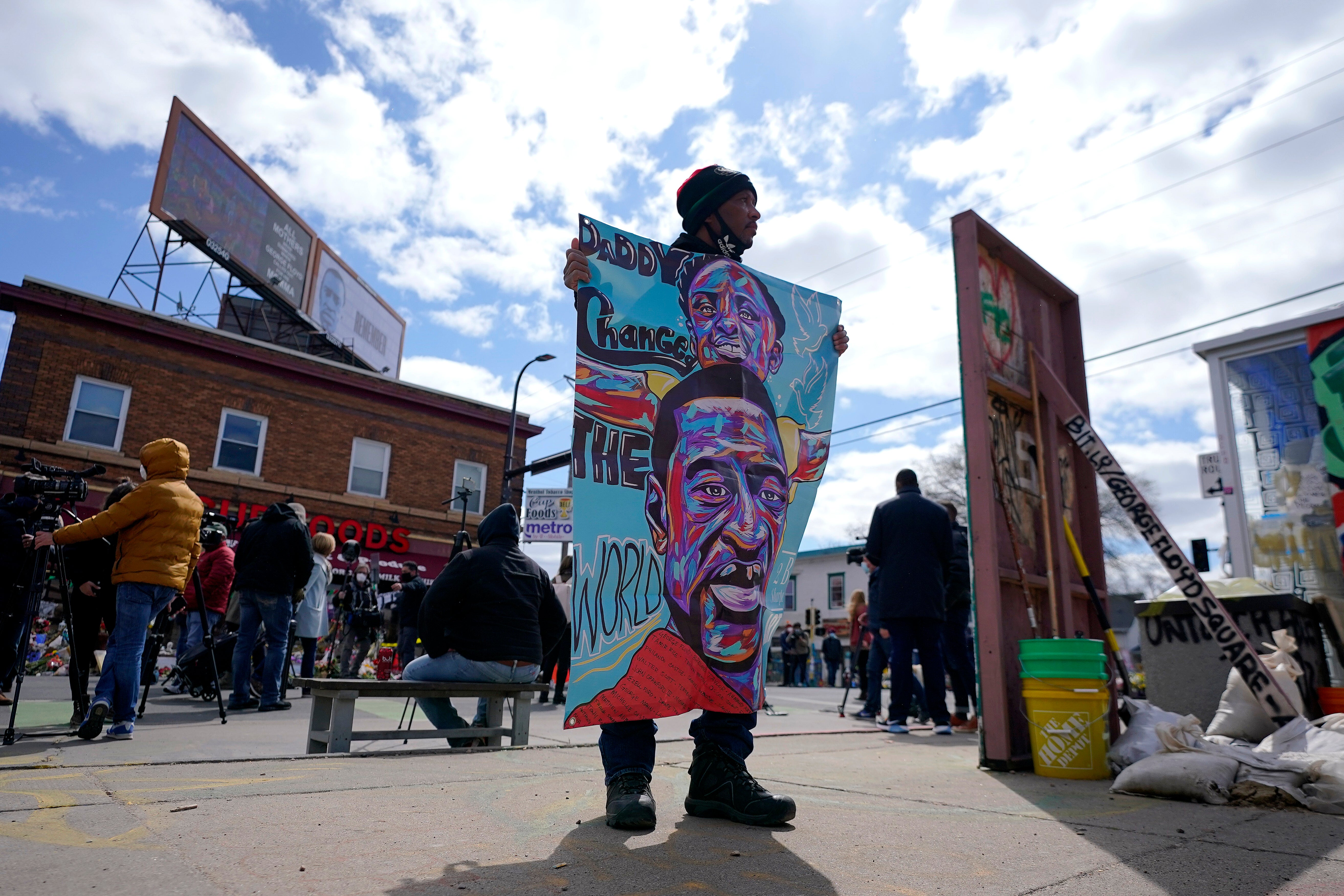The Independent's journalism is supported by our readers. When you purchase through links on our site, we may earn commission.
What has actually changed since George Floyd died? Not enough
For a brief moment, I thought things would turn out differently


Your support helps us to tell the story
From reproductive rights to climate change to Big Tech, The Independent is on the ground when the story is developing. Whether it's investigating the financials of Elon Musk's pro-Trump PAC or producing our latest documentary, 'The A Word', which shines a light on the American women fighting for reproductive rights, we know how important it is to parse out the facts from the messaging.
At such a critical moment in US history, we need reporters on the ground. Your donation allows us to keep sending journalists to speak to both sides of the story.
The Independent is trusted by Americans across the entire political spectrum. And unlike many other quality news outlets, we choose not to lock Americans out of our reporting and analysis with paywalls. We believe quality journalism should be available to everyone, paid for by those who can afford it.
Your support makes all the difference.For a brief moment there, it felt like those nine minutes and 29 seconds of the most blatant form of police brutality most people had ever seen might ignite some real, tangible change in America. One can only have so much hope in a country that sends someone like Donald Trump to the presidency (and Black people already have plenty of other reasons to be skeptical before that nightmare began), but based on what was taking place last summer, there was reason to have it.
Based on polls from data science firms like Civis Analytics at the time, it was suggested that approximately 15 million to 26 million people in the United States participated in demonstrations over the deaths of unarmed Black people such as Floyd and Breonna Taylor at the hands of law enforcement. Such figures, as the New York Times reported, would “make the recent protests the largest movement in the country’s history.”
I can attest that it was surreal to not only see so many white people take to the streets to demand the police treat us like human beings, but in many cases take the lead. Like George Floyd, I am from Houston, Texas. Like Floyd and so many other Black men, women, and children across the South, we not only know to worry about law enforcement pulling us over, but also which small towns on the road to never stop in. Places like Vidor, Texas, known as a sundown town — yet last summer, its residents held a peaceful protest in memory of Floyd. A protest there of all places seemed to signify a real shift.
It was revelations like those that allowed me room to believe that maybe this moment would be different. A real step forward for Black people in this country to be treated with decency. Maybe.
Yet, as we mark one year since George Floyd’s life was stolen by the now convicted former Minneapolis police officer Derek Chauvin, the atmosphere is different.
It’s not that I believed change would be swift and monumental. I know that law enforcement couldn’t be brought to heel overnight, or indeed within 12 months — certainly not without a lot of union-busting first. And to the credit of many organizers, there are reasons to celebrate. Chauvin being convicted will not bring Floyd back, but for once, it was good to see one of his kind finally be held accountable.
Much as I loathe having to find relief in the simple justice of a killer cop being convicted, an acquittal would have been too much for his nation.
There are some reasons to be positive. In Minneapolis itself, the city is trying to change its way of policing (not that it had much of a choice), but more importantly the argument to eliminate policing together is being taken more seriously.
Still, when it comes to the simple question of whether I as a Black person feel any safer around a police officer one year later, the answer is: Absolutely not.
I’m not alone, either. A new poll from The Associated Press-NORC Center for Public Affairs Research shows that “Americans remain more likely than they were before [Floyd’s] death to say that police violence is a serious problem, but relatively few say attention in the past year to the issue has led to positive change.”
Where do the Democrats stand in all of this, now they’re in the White House? With all due respect to Madame Speaker Pelosi, Floyd did not “sacrifice his life for justice.” He was murdered by a cop. So, while naming a police reform bill after him is not necessarily the great compliment some politicos suggest it to be, at the very least, let’s get the bill made into law.
“Let’s get it done next month, by the first anniversary of George Floyd’s death,” Biden said on April 28, one week after a jury convicted Chauvin of murdering Floyd. “The country supports this reform and Congress should act.” Unfortunately, Congress has failed to meet President Biden’s deadline to sign the bill into law before the anniversary. I understand the calls for bipartisanship, but not at the expense of meaningful action nor at the expense of additional Black lives. The Democrats need to defend Black people from police brutality with the same intensity as the Republican Party works to strip away Black folks of their voting rights.
If they can’t do that, they will have earned their doom.
Join our commenting forum
Join thought-provoking conversations, follow other Independent readers and see their replies
0Comments